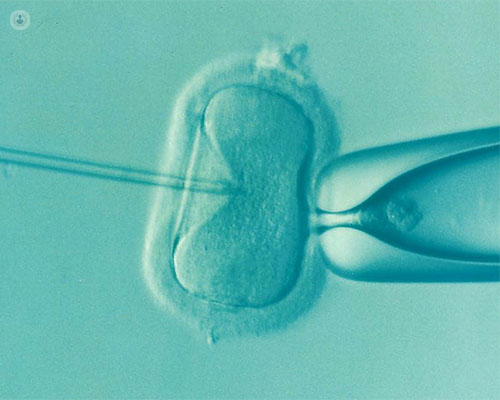Implantation failure treatment and diagnostic
Ms Neelima Dixit - Obstetrics & gynaecology
Created on: 02-26-2013
Updated on: 05-19-2023
Edited by: Carlota Pano
One of the most common treatments of infertility is implantation. Techniques such as in vitro fertilisation (IVF) and intracytoplasmic sperm injection (ICSI) are usually very successful methods of implantation.
However, the methods are not fail proof, and there are a number of factors that can cause implantation failure. Repeated implantation failure (RIF) can sometimes occur, and investigations are made into the reasons behind this and to look for ways to treat the causes.

Diagnosis of implantation failure
Diagnosis of implantation failure is broken down into two camps: maternal testing and paternal testing.
Maternal tests for implantation failure
- Thrombophilia (clotting) screen
This checks the possibility of any genetic or acquired disorders that increase the risk of clotting in the blood that can cause pregnancies to fail.
- Immunology screening
An overactive immune response, such as an increase in white blood cells, can attack the implanted embryo leading to pregnancy failure.
- Hormonal screening
Small hormonal imbalances and disorders can affect the success rate of a pregnancy. Disorders such as progesterone imbalances can cause the womb lining to mature too early, meaning it is not receptive to an embryo.
- Anatomical screening
There are a number of ways that a detailed assessment of the endometrium (womb lining) may be performed. Hysterosalpingogram (HSG) uses a dye passed into the womb, 3D ultrasound checks the structural abnormality of the womb, while hysteroscopy uses a small scope to allow a more direct visualisation of the womb.
Paternal tests for implantation failure
- Sperm DNA
There is evidence to suggest that damage to the sperm DNA can lead to failure of IVF. Sperm testing can help to rule out whether this is a factor in repeat implantation failure.
- Intracytoplasmic morphological sperm injection (IMSI)
An embryologist can check for tiny defects in the sperm head that may not be visible when testing the DNA.
- Karyotype
A blood test to check for genetic variations that are causing implantation failure.
Treatments for implantation failure
Depending on what kind of genetic or acquired disorders are discovered, there are a number of treatment methods that can overcome these problems and lead to a higher chance of implantation success.
For any problems with blood clotting discovered through the thrombophilia screen, a simple course of aspirin can overcome this.
Endometrial scratch is a method of stimulating the womb prior to implantation that has been shown to improve implantation outcomes in those that had previously suffered with repeated implantation failure.
Endometrial receptivity array (ERA) is a way of assessing the perfect time for implantation, depending on genes within the lining of the womb, and when they are at their premium time for implantation.
Embryo selection techniques can help to overcome certain causes of cycle failure, such as a genetic screen of embryos.
Using an embryoscope to monitor development of the embryo using time lapse technology.
To make an appointment with an implantation specialist, or to find why you may be having trouble conceiving, make an appointment here.
